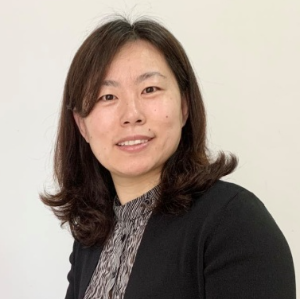Title : Colon-specific scallop hydrolysates/Κ-carrageenan hydrogel loaded with curcumin alleviates dss-induced colitis through modulation of inflammatory cytokines and gut microbiota
Abstract:
Ulcerative colitis (UC) is a continual, relapsing inflammatory illness that mainly involves from rectum to submucosa. Curcumin (Cur) has been reported as a credible phytochemical component with effective treatment activity against UC, but it is prone to degradation during the digestion process and exhibits a short retention time in the colon. In this case, scallop (Patinopecten yessoensis) male gonad hydrolysate/κ-carrageenan (SK) double cross-linking network hydrogels were fabricated as Cur delivery vehicles, exhibiting ideal UC mitigation behaviors. The resulting Cur-loaded hydrogels exhibited considerable gel mechanical strength and a homogeneous honeycomb network. With the intervention of dextran sulfate sodium (DSS), the effect of various supplements (SK, Cur and SK-Cur) on modulating colitis in mice was explored. As expected, Cur and SK-Cur supplementation effectively attenuated the clinical symptoms of DSS-stimulated UC mice, reflected by less weight loss, decreased disease active index (DAI) indices, restored colon tissues with longer length and more intact intestinal epithelium, in which SK-Cur intervention manifested superior impact. Moreover, Cur-loaded administration could modulate oxidative stress and inflammatory expression, as indicated by decreased MPO and iNOS levels, downregulated expression of TNF-α, IL-1β and IL-6 and upregulated expression of IL-10, especially for SK-Cur, suppressing the epithelial to mesenchymal transition and thus alleviating inflammation. Furthermore, SK-Cur formulation regulated the ecological environment of the gut flora of colitis in mice, which was demonstrated by enriched alpha diversity (Shannon, Ace, Chao and Simpson) and restored taxonomic composition with increasing community abundance of Bacteroides and Verrucomicrobia accompanied by decreasing Firmicutes. Collectively, these results confirmed the development of colon-specific drug delivery dietary SK-Cur in vivo, epitomizing the potential protective effect of SK on Cur as a nutritional supplement against colitis and inflammation-related diseases.
Audience Take Away Notes:
- This study provides the design and development of functional hydrogels based on scallop hydrolysates and κ-carrageenan as effective vehicles for Cur delivery to the colon with a longer retention time and exerting therapeutic effects, further for food, pharmaceutical and biomedical applications.
- In comparison to pure Cur, SK-Cur supplementation exhibits better efficacy at relieving the clinical symptoms in DSS-stimulated UC mice reflected by less weight loss, lower DAI values and longer colon length after DSS induction.
- SK-Cur hydrogel supplementation reflects effective protection against DSS-induced destruction of the epithelial and mucosal architecture and reveals better preventive effect on pathological variations in the colons of UC mice than the pure Cur treatment.
- SK-Cur hydrogel administration could ameliorate colitis partly by suppressing the expression of MPO and iNOS via oxidative stress modulation and regulating inflammatory responses including TNF-α, IL-1β, IL-6 and IL-10.
- SK-Cur hydrogel administration could modulate the intestinal microbiome community of mice accompanied by less pathogenic bacteria composition and exhibit a positive immunomodulating role on DSS-induced UC mice.


